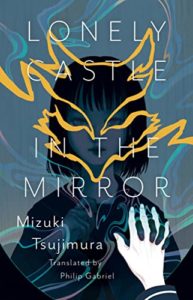 What would you do if you were given the chance to leave your current world and walk into a new one? That is the question faced by the protagonists of this week’s What’s New reads. All three find themselves in a new world and must figure out how to move forward.
What would you do if you were given the chance to leave your current world and walk into a new one? That is the question faced by the protagonists of this week’s What’s New reads. All three find themselves in a new world and must figure out how to move forward.
A young girl finds friendship through her isolation in Mizuki Tsujimura’s latest work, Lonely Castle in the Mirror. Kokoro avoids school by hiding away in her bedroom, avoiding the bullies that torment her, further isolating herself from the world. One day, the mirror in her bedroom begins to shine and Kokoro is transported to a mysterious mansion. There she meets six other teenagers and a wolf mask-wearing host who explains the rules. There is a room hidden away in the mansion and whoever finds it can have any wish that they want granted. But the mansion is not without its dangers, as severe punishments lay in store for those who break the rules. As the teenagers spend time together, and secrets are revealed, Kokoro finds that she truly is not as alone as she always thought.
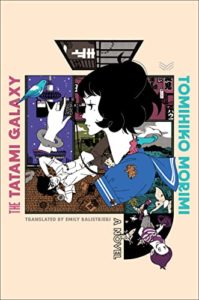 Absurdness abounds in The Tatami Galaxy by Tomihiko Morimi. After committing another prank on an overbearing club president, an unnamed college junior laments his life, feeling as though if he could do things over, his life would be so much better. He would avoid his friend and tormentor, Ozu, and finally get the girl, (or any girl really). After a chance meeting with a god, our narrator gets that opportunity. The narrator is sent back to being a freshman and is given multiple chances for a fresh start. Now having the absolute freedom to choose a new path, our narrator sets out to explore all of them. Through situations involving love dolls, giant swarms of moths, and cute bear keychains, Morimi ties all the paths together and shows that even with infinite choices, and a push in the right direction, our choices are ours to own.
Absurdness abounds in The Tatami Galaxy by Tomihiko Morimi. After committing another prank on an overbearing club president, an unnamed college junior laments his life, feeling as though if he could do things over, his life would be so much better. He would avoid his friend and tormentor, Ozu, and finally get the girl, (or any girl really). After a chance meeting with a god, our narrator gets that opportunity. The narrator is sent back to being a freshman and is given multiple chances for a fresh start. Now having the absolute freedom to choose a new path, our narrator sets out to explore all of them. Through situations involving love dolls, giant swarms of moths, and cute bear keychains, Morimi ties all the paths together and shows that even with infinite choices, and a push in the right direction, our choices are ours to own.
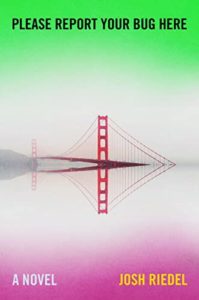 New technology results in a mystery in Josh Riedel’s first work, Please Report Your Bug Here. Ethan spends his days filtering out inappropriate content in a new dating app called DateDate. Working in the new startup for his friend turned boss named the Founder, recently single Ethan has little time to engage in the outside world. Ethan looks for a connection in the app, but problems occur when the app sends him to another world. Armed with this new discovery, Ethan tries to warn the Founder, but with his eyes on being acquired by a corporation, Ethan’s warning goes unheeded. Isolated in his quest, Ethan must figure out how the app is sending its users to the otherworld and how much the Founder and the Corporation really know about what’s going on.
New technology results in a mystery in Josh Riedel’s first work, Please Report Your Bug Here. Ethan spends his days filtering out inappropriate content in a new dating app called DateDate. Working in the new startup for his friend turned boss named the Founder, recently single Ethan has little time to engage in the outside world. Ethan looks for a connection in the app, but problems occur when the app sends him to another world. Armed with this new discovery, Ethan tries to warn the Founder, but with his eyes on being acquired by a corporation, Ethan’s warning goes unheeded. Isolated in his quest, Ethan must figure out how the app is sending its users to the otherworld and how much the Founder and the Corporation really know about what’s going on.
Transport yourself with these new otherworldly reads.
 “
“ “
“ Franny Choi explores generation trauma in her latest work, “
Franny Choi explores generation trauma in her latest work, “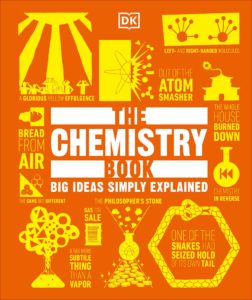 “
“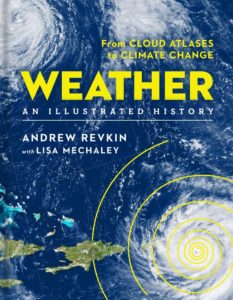 Another book that uses a timeline with great success is “
Another book that uses a timeline with great success is “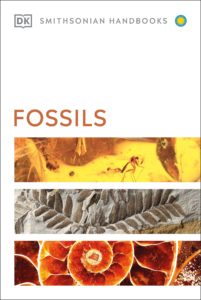
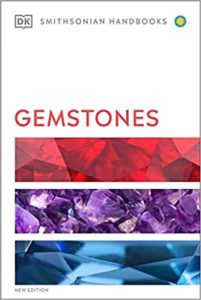 If ‘identifying’ is something that has piqued your interest, there are two new DK Smithsonian books. “
If ‘identifying’ is something that has piqued your interest, there are two new DK Smithsonian books. “ Mosscap and Sibling Dex return in “
Mosscap and Sibling Dex return in “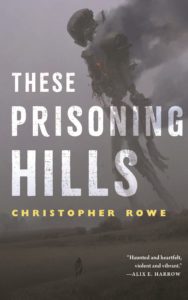 Another science fiction entry, but much darker, Christopher Rowe shows the world after a sentient AI war has come to pass in the “
Another science fiction entry, but much darker, Christopher Rowe shows the world after a sentient AI war has come to pass in the “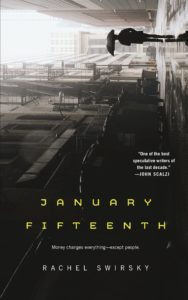 “
“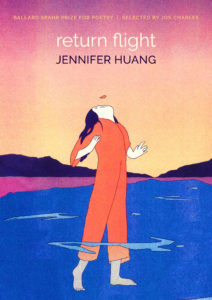 Summer is fully upon us, making leaving the air-conditioned comfort of the indoors harder to extricate ourselves from. But what to do with all that time indoors while the sun cooks everything in sight to a crisp? Books of course! Here are some new poetry books to help you while away the bright summer months.
Summer is fully upon us, making leaving the air-conditioned comfort of the indoors harder to extricate ourselves from. But what to do with all that time indoors while the sun cooks everything in sight to a crisp? Books of course! Here are some new poetry books to help you while away the bright summer months. Nicky Beer explores the joy of artifice in her latest work “
Nicky Beer explores the joy of artifice in her latest work “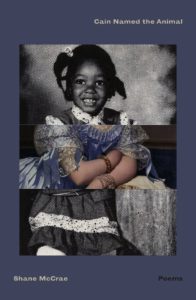 Shane McCrae, in his latest work, “
Shane McCrae, in his latest work, “